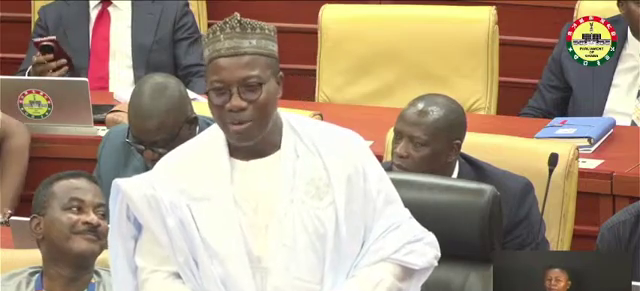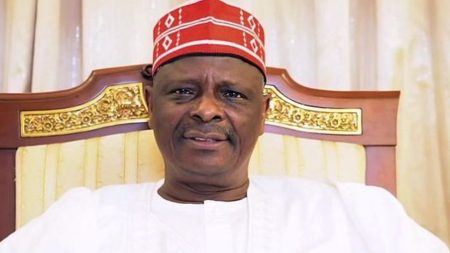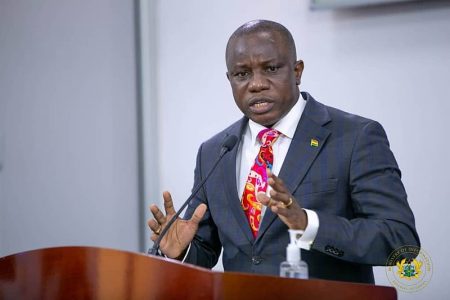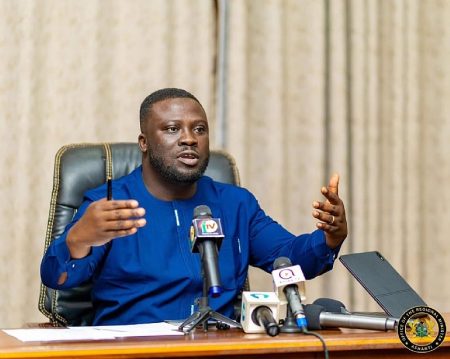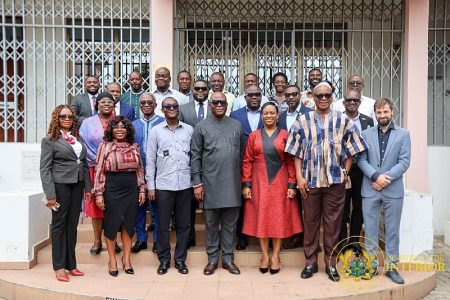The political arena in Ghana witnessed a spirited exchange between the Majority Leader, Mahama Ayariga, and the Minority Leader, Alexander Afenyo-Markin, regarding gender representation in government. The debate unfolded on the floor of Parliament, sparked by Afenyo-Markin’s accusation that President Mahama had reneged on his campaign pledge to appoint 30% women to his cabinet. Ayariga countered by challenging the opposition New Patriotic Party (NPP) to demonstrate its commitment to gender empowerment by nominating a female candidate for the running-mate position, echoing the NDC’s historic choice of Professor Naana Jane Opoku-Agyemang as the first female Vice President of Ghana.
Ayariga’s retort underscored the NDC’s progressive stance on gender inclusion and subtly shifted the focus from the President’s cabinet appointments to the NPP’s internal dynamics. He dismissed Afenyo-Markin’s allegations regarding the limited number of female ministers in the Mahama administration, framing the discussion around broader structural changes needed to facilitate women’s political participation. The Majority Leader proposed a tangible measure to address the issue: for both the NDC and the NPP to strategically concede “safe seats” in their respective strongholds to female candidates, thereby guaranteeing a higher representation of women in Parliament. This proposition, targeting the Volta region for the NDC and the Ashanti region for the NPP, aimed to create a larger pool of qualified female candidates from which the President could draw ministerial appointments.
Ayariga further highlighted what he perceived as a contradiction in Afenyo-Markin’s position, emphasizing the NPP’s loss of female parliamentary seats during Afenyo-Markin’s own tenure as Majority Leader. This pointed jab, delivered with the proverbial “dzi wo fie asem” (mind your own business), injected a touch of humor into the proceedings while subtly suggesting that the NPP should address its internal challenges before critiquing the NDC’s record. The banter revealed the underlying tension between the two parties, using the issue of gender representation as a platform to score political points and deflect criticism.
The exchange highlighted the complex interplay between political rhetoric and tangible action on gender equality. While the NPP’s criticism revolved around the President’s cabinet appointments, the NDC broadened the scope to encompass legislative representation, arguing that increasing the number of female MPs is a prerequisite for achieving gender parity in ministerial positions. Ayariga’s proposition to concede safe seats reflects a strategic approach to increase female representation, acknowledging the entrenched political landscape where certain constituencies consistently favor one party over the other. This strategy, though potentially effective, also raises questions about its implications for democratic processes and voter choice.
Afenyo-Markin’s initial critique of the President’s cabinet appointments centered on the unfulfilled promise of 30% female representation. He highlighted the perceived sidelining of qualified female MPs within the NDC, raising questions about the party’s commitment to promoting women to leadership roles. This critique reflected a broader concern about the underrepresentation of women in decision-making positions, an issue that transcends party lines and has implications for equitable governance. His allegation that only 28 women were appointed as mayors and Chief Executives further emphasized the need for increased female representation at all levels of government.
The parliamentary exchange brought the issue of gender representation into sharp focus, underscoring the ongoing debate about the effectiveness of different strategies to achieve greater equality in politics. The NDC’s focus on structural changes through increasing female representation in Parliament contrasted with the NPP’s emphasis on direct appointments to ministerial positions. This difference in approach reflects the nuances of the debate, where various pathways are proposed to achieve the common goal of empowering women in the political sphere. The lively exchange, punctuated with humor and pointed remarks, provided a glimpse into the dynamics of Ghanaian politics while simultaneously raising important questions about the nation’s journey towards greater gender equality.





